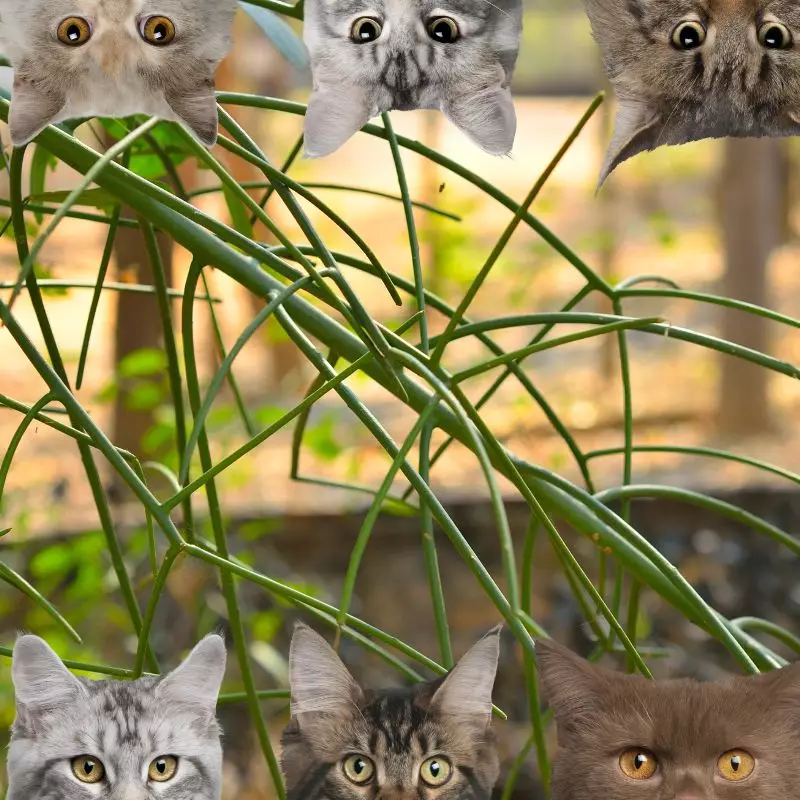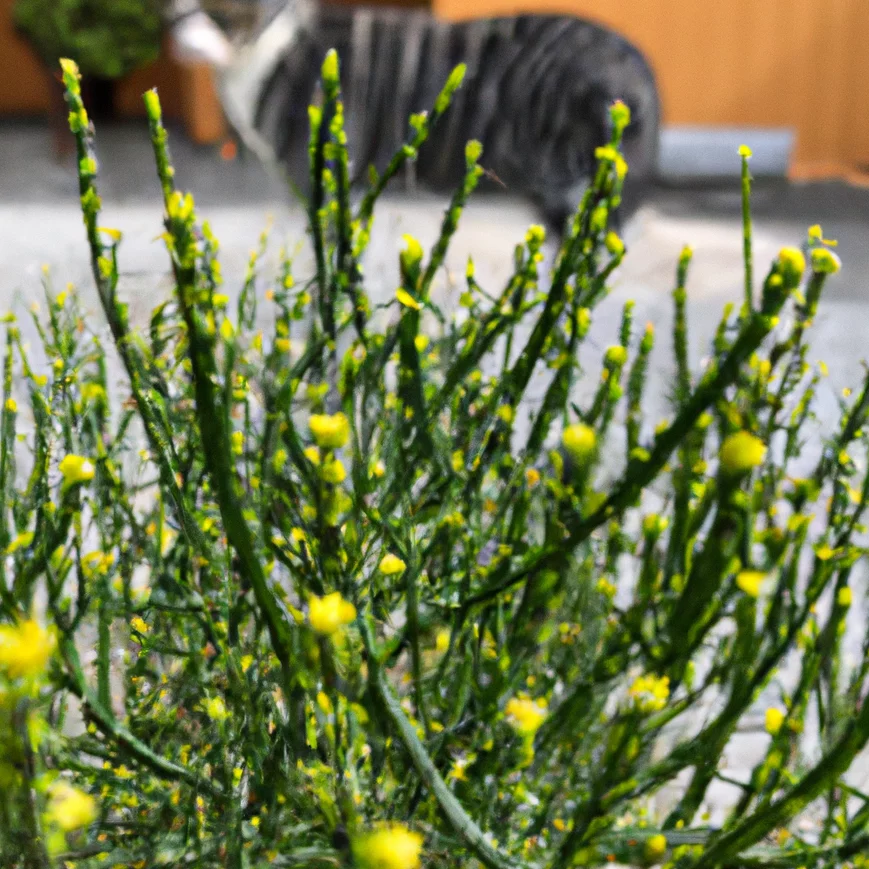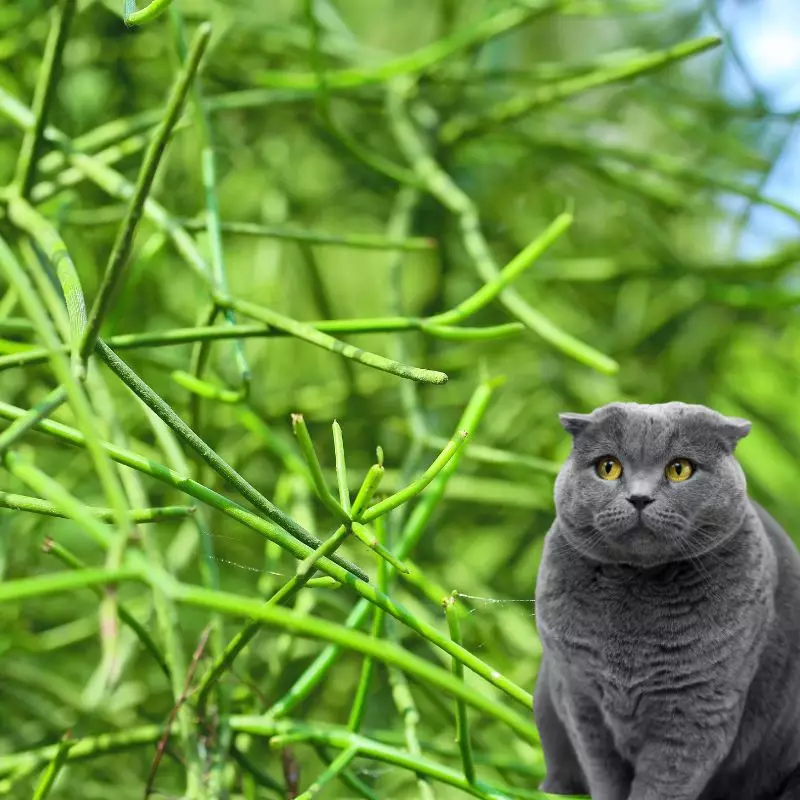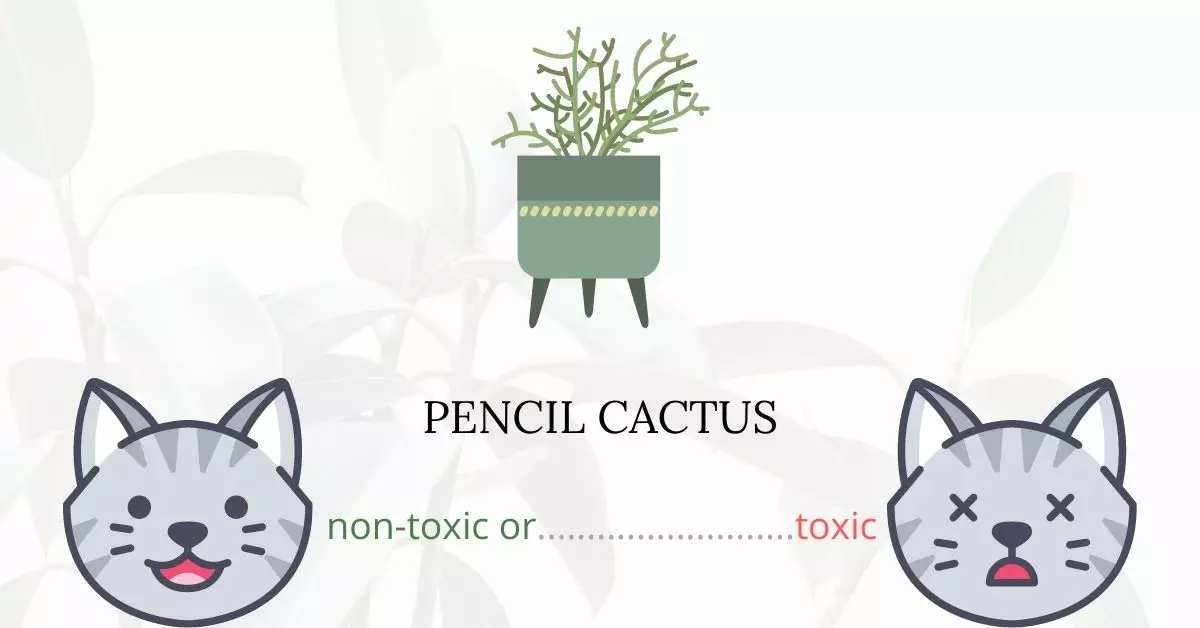Yes, the pencil cactus is indeed toxic to cats.
This article was meticulously written in collaboration with a team of experienced Doctors of Veterinary Medicine (DVMs), who have contributed their extensive knowledge to provide accurate, comprehensive, and up-to-date information on the potential risks associated with various plants, specifically the Pencil Cactus, and their effects on cats. To further ensure the reliability of the information provided, our research included references to high-authority websites such as ASPCA and PetMD.
The toxic principle of the pencil cactus is the presence of irritating and carcinogenic diterpene esters found in its latex sap. When in contact, this can cause severe irritation to the mouth, skin, and eyes of the cat. If bitten into, the plant induces acute discomfort, effectively serving as a deterrent to further ingestion. This cutaneous and, particularly, ocular damage observed in humans can easily be correlated to animal species, including cats, that have been exposed to this plant’s harmful sap, underscoring the peril it presents to our feline friends.
Clinical Signs of Pencil Cactus Poisoning in Cats

The pencil cactus, scientifically known as Euphorbia tirucalli, is considered highly toxic when ingested or even when its sap comes into contact with the skin or eyes. Understanding the clinical signs can assist pet owners in recognizing exposure and seeking timely treatment. Here are the common symptoms observed in cats and an explanation of why each may occur following contact or ingestion of the pencil cactus:
- Intense Oral Pain: This is caused by the irritating chemicals present in the latex sap of the plant. When a cat chews on or bites the plant, these chemicals can induce severe pain and inflammation within the mouth.
- Vomiting: Ingesting the plant can lead to gastrointestinal upset, causing the cat to vomit in an attempt to expel the toxic substances.
- Drooling: The intense oral pain and irritation caused by the sap can lead to excessive drooling or salivation.
- Loss of Appetite: Due to the discomfort in the mouth and potential nausea, the cat may refuse to eat.
- Watery Eyes: If the sap comes into contact with the cat’s eyes, it can cause irritation, leading to increased tear production.
- Photophobia: This refers to a heightened sensitivity to light. If the eyes are affected by the sap, it can result in discomfort when exposed to bright light.
- Ulceration: The potent chemicals in the sap can lead to ulcers, especially on sensitive areas like the mouth or eyes.
- Temporary Blindness: Severe ocular exposure can result in temporary vision impairment, stressing the importance of keeping this plant out of reach.
- Dermal Pain: Direct skin contact with the sap can cause pain due to its irritating nature.
- Redness of Skin: This is a typical inflammatory response to the irritants present in the sap.
- Swelling: The skin may swell at the point of contact, signifying an allergic or irritative reaction to the sap.
If you suspect your cat has come into contact with a pencil cactus, it’s crucial to consult a veterinarian immediately to ensure appropriate care and intervention.
First Aid and Treatment of Pencil Cactus Poisoning in Cats

If ocular exposure has occurred, immediately flush the affected eye with water to remove as much sap as possible before transporting the cat to a veterinary hospital.
To remove irritant sap from the coat, give the cat a spot bath in cool water with soap. Take extreme caution not to spread the sap to other parts of the body. Because of the immediate pain, a cat feels when chewing pencil cactus, oral exposure is usually self-limiting.
To help dilute the toxin, give the cat a drink of something tasty, such as tuna juice or milk.
Recovery from Pencil Cactus Poisoning in Cats

The prognosis is good unless the sap has caused damage to the eyes, which may take time to repair. There’s a chance your cat’s eyes will be permanently damaged, and if that happens, you’ll have to be patient as he or she adjusts to a new lifestyle.
Prevention of Pencil Cactus Poisoning in Cats
Avoid growing pencil cactus in your home especially if you have animals living with you. Keep your cats indoors and reduce their outdoor activities.
If you love plants but have cats at home, check out these lists:





